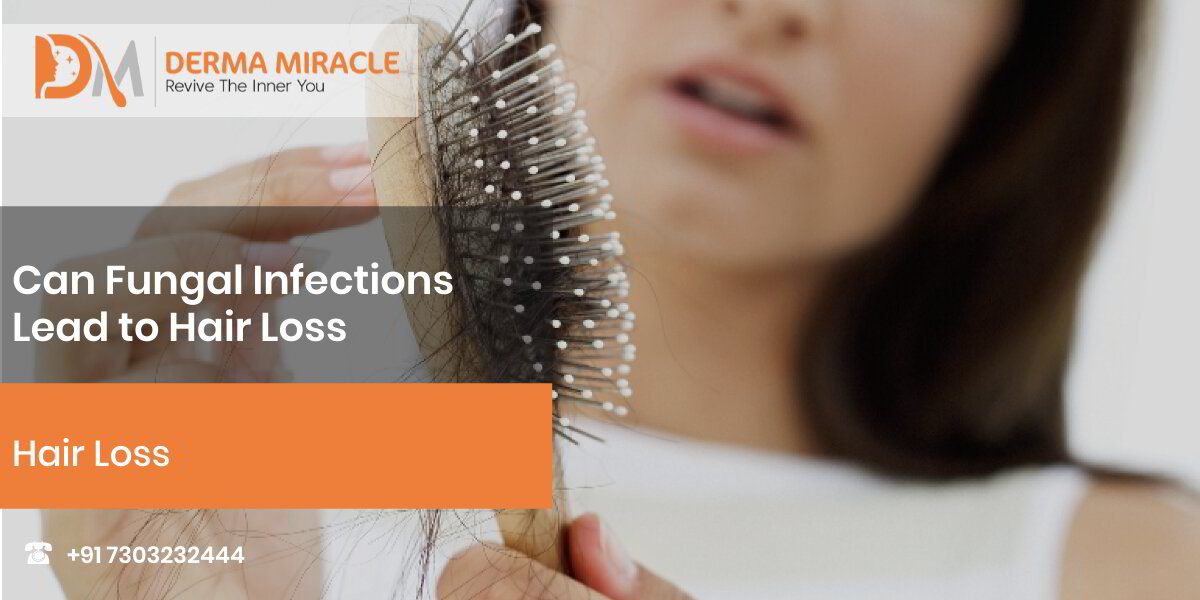Fungal infections can lead to loss of hair and/or a thinning of the hair if the fungal infection is localized to the scalp. A fungal infection that appears on any other area of the body will not affect your scalp and your hair. The most common fungal infections known to result in hair loss include Tinea Capitis (ringworm) and yeast infections.

Table Of Content
-
Fungi: Knowing Your Inner Mushroom
-
What Kinds of Fungal Infections Affect The Scalp?
-
Yeast Infections of The Scalp
-
Ringworm of The Scalp
-
Mucormycosis
Fungi: Knowing Your Inner Mushroom
Fungal infections are exceedingly common diagnoses to come by. As far as types of fungi, there are millions. However, only roughly 300 of them can lead to infection in humans.Fungi are found all over, but humans will most often pick up fungal infections that are found in soil, on plants, through digestion of unwashed foods, and through wearing unwashed clothes.The most common types of fungal infections include:
- Ringworm
- Athletes foot
- Jock itch
- Ringworm of the scalp
- Yeast infections

What Kinds of Fungal Infections Affect The Scalp?
There are a handful of fungal infections that take root in the scalp. They include:
- Yeast infection of the scalp
- Ringworm of the scalp
- Mucormycosis
- Let’s break these three down
Yeast Infections of The Scalp
Yeast infections are most often the direct result of an overgrowth of yeast. A certain amount of yeast in the body is healthy, but when we experience overgrowth, the build-up often takes place in the scalp. This leads to itching, dandruff, and even hair loss.Treating yeast infections of the scalp can often be done with the help of over-the-counter topicals such as creams, shampoos, and conditioners formulated to treat the overgrowth. Once the overgrowth is treated, hair regrowth should begin to take place.

Ringworm of The Scalp
Although ringworm of the scalp is most common in children, it can occur in adults as well. This is a highly contagious fungus that leads to bald patches and overall to hair loss if it goes untreated. Depending on the length of the time the fungus has gone untreated, hair loss can be permanent. However, hair regrowth usually does take place as long as the fungus is treated correctly.Treatment for ringworm of the scalp is done through oral medication to kill the fungus as well as through shampoos and conditioners formulated to target the fungus from the outside.
Mucormycosis
A serious but rare infection caused by a buildup of molds on the scalp, mucormycosis should be addressed as quickly as possible to avoid permanent damage to the scalp, hair follicles, and hair shafts. The only way to treat this condition is through IV antifungal medication.
Hair loss caused by fungal infection is often reversible when the infection is treated in the appropriate amount of time. In cases where hair regrowth doesn’t occur, there are several hair restoration techniques available that can be done to help promote hair growth!
CONSULT DEMAMIRACLE
Facial Treatment for Glowing Skin
ACT BEFORE IT’S TOO LATE

FREE CONSULTATION AVAILABLE
Contact Us
